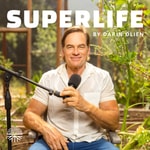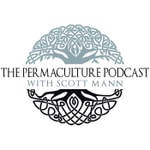The Poor Prole’s Almanac – Details, episodes & analysis
Podcast details
Technical and general information from the podcast's RSS feed.

The Poor Prole’s Almanac
The Poor Prole’s Alamanac, Bleav
Frequency: 1 episode/7d. Total Eps: 268

Recent rankings
Latest chart positions across Apple Podcasts and Spotify rankings.
Apple Podcasts
🇺🇸 USA - homeAndGarden
27/07/2025#42🇺🇸 USA - homeAndGarden
26/07/2025#41🇨🇦 Canada - homeAndGarden
25/07/2025#93🇺🇸 USA - homeAndGarden
25/07/2025#33🇨🇦 Canada - homeAndGarden
24/07/2025#95🇺🇸 USA - homeAndGarden
24/07/2025#46🇨🇦 Canada - homeAndGarden
23/07/2025#85🇺🇸 USA - homeAndGarden
23/07/2025#45🇨🇦 Canada - homeAndGarden
22/07/2025#84🇺🇸 USA - homeAndGarden
22/07/2025#35
Spotify
No recent rankings available
Shared links between episodes and podcasts
Links found in episode descriptions and other podcasts that share them.
See all- http://www.tomorrowtodaypodcast.org/
147 shares
- http://www.agroecologies.org
97 shares
RSS feed quality and score
Technical evaluation of the podcast's RSS feed quality and structure.
See allScore global : 69%
Publication history
Monthly episode publishing history over the past years.
Protests and Solidarity: Inside the DNC Convention Unrest; A Week of Resistance in Chicago
lundi 26 août 2024 • Duration 01:27:47
Join us as we explore a transformative journey through the protests surrounding the Democratic National Convention (DNC) in Chicago. This firsthand account guides us through the emotional highs and lows of modern activism, from initial ignorance about the Palestinian cause to the solidarity and danger faced on the streets. Hear about the diverse range of organizations banding together, the historical echoes of 1968, and the meticulous preparations to safeguard against police violence.
Our deep dive doesn't stop there. We also reflect on the recent pro-choice protest in Chicago, highlighting the intersection of grassroots movements and media dynamics. Discover the intricate balance between protesters' efforts and media portrayal, the overwhelming pro-Palestinian sentiment, and the pivotal role of legal observers. The physical demands and profound sense of solidarity among various activist groups are brought to light, underscoring the vital role of collective action in political discourse.
In a candid conversation with a healthcare worker advocating for Palestinian rights, we uncover the harsh realities of police brutality and the tactical measures taken by protesters to protect themselves. From navigating police presence to the unity within leftist groups, these insights offer a comprehensive look at protest strategies and the philosophies driving the movement. A local official weighs in on the importance of grassroots involvement and the urgent need for unity within the US left to achieve meaningful change. Get ready for a narrative that not only informs but also inspires action.
For sources and to read more about this subject, visit: www.agroecologies.org
To support this podcast, join our patreon for early episode access at https://www.patreon.com/poorprolesalmanac
For PPA Writing Content, visit: www.agroecologies.org
For PPA Restoration Content, visit: www.restorationagroecology.com
For PPA Merch, visit: www.poorproles.com
For PPA Native Plants, visit: www.nativenurseries.org
To hear Tomorrow, Today, our sister podcast, visit: www.tomorrowtodaypodcast.org/
Key Words:
Road Trip, Podcast, 2020 Election, COVID-19, U.S. Political Landscape, Trump, Biden, Democratic Party, USAID, Israel, Labor Rights, LGBTQIA+ Rights, Police Accountability, Campus Tensions, Palestinian Cause, State Violence, Police Reform, Chicago Police Department, Political Unrest, Activism, Collective Action, First Amendment Rights, Kamala Harris, Cook County State's Attorney, State Violence, Police Accountability, Oath Keepers, 1968 Democratic National Convention, Progressive Factions, Political Awareness, Activism Movement, Mass Movement, Justice, Hollow Slogans, Empty Promises
Protests and Politics at the DNC in Chicago: Contextualizing the Convention
lundi 19 août 2024 • Duration 01:07:40
In this compelling episode of The Port Proles Almanac, we delve into the intricate dynamics of political activism surrounding the upcoming Democratic National Convention (DNC) in Chicago. From the grassroots struggles of the Coalition to March on the DNC to the bureaucratic hurdles in securing protest permits, we unpack the multifaceted challenges activists face. Featuring an insightful conversation with Faayani, spokesperson for the coalition, and member of the Chicago Alliance Against Racist and Political Repression, we explore the group's intersectional advocacy, including labor rights, LGBTQIA+ rights, and police accountability.
We also draw historical parallels to the tumultuous 1968 DNC, reflecting on the cyclical nature of political unrest and the enduring fight for justice. This episode examines the broader themes of state violence and police accountability, highlighting recent controversies involving the Chicago Police Department and the distribution of federal funds and how these help us understand the context of the convention.
Listeners are urged to engage in the ongoing struggle for justice, challenge the status quo, and recognize collective action's impact in shaping our political future. Join us as we navigate the maze of political activism and explore the historical context and potential of the upcoming DNC protests in Chicago and how this event allows us to identify a new vector to push for a ceasefire and autonomy for the people of Palestine.
The Chicago Alliance Against Racist & Political Repression's website for more on the upcoming protest of the convention & Democratic support for the genocide in Palestine:
For sources and to read more about this subject, visit: www.agroecologies.org
To support this podcast, join our patreon for early episode access at https://www.patreon.com/poorprolesalmanac
For PPA Writing Content, visit: www.agroecologies.org
For PPA Restoration Content, visit: www.restorationagroecology.com
For PPA Merch, visit: www.poorproles.com
For PPA Native Plants, visit: www.nativenurseries.org
To hear Tomorrow, Today, our sister podcast, visit: www.tomorrowtodaypodcast.org/
Key Words:
Road Trip, Podcast, 2020 Election, COVID-19, U.S. Political Landscape, Trump, Biden, Democratic Party, USAID, Israel, Labor Rights, LGBTQIA+ Rights, Police Accountability, Campus Tensions, Palestinian Cause, State Violence, Police Reform, Chicago Police Department, Political Unrest, Activism, Collective Action, First Amendment Rights, Kamala Harris, Cook County State's Attorney, State Violence, Police Accountability, Oath Keepers, 1968 Democratic National Convention, Progressive Factions, Political Awareness, Activism Movement, Mass Movement, Justice, Hollow Slogans, Empty Promises
The Homesteading Movement, The Vietnam War, & The White Supremacy Movement
Episode 215
lundi 17 juin 2024 • Duration 54:48
The Vietnam War gave birth to a new generation of veterans, ones who came back from war feeling abandoned by their government and by their fellow civilians. Unlike prior wars, the enemies were largely non-white and the terrain of war was entirely different. Guerrilla war and traps created the conditions of dehumanization that bled racism into anti-communism. Upon returning home, many found themselves disgusted by the United States government and found the country they returned to much different than the country they had left, as progressive policies had taken hold through the late years of the 60s and early 70s. We highlighted this with the rise of the Back to the Land movement, and how the countercultural revolution fed into new visions of the future.
Many point to the startling rise in white supremacy in the late 20th century to the aftermath of the Vietnam War. As narrated by white power proponents, the Vietnam War was a story of constant danger, gore, and horror. It was also a story of soldiers’ betrayal by military and political leaders and of the trivialization of their sacrifice. This narrative increased paramilitarism and separationism through homesteading and communes within the movement. In his speeches, newsletters, and influential 1983 collection Essays of a Klansman, movement leader Louis Beam urged activists to continue fighting the Vietnam War on American soil. When he told readers to “bring it on home,” he meant a literal extension of military-style combat into civilian space. He referred to two wars: the one he had fought in Vietnam and the white revolution he hoped to wage in the United States.
In this episode, we explore how the politics of the 1960s and 70s drove the homesteader movement and shifted the focus of growing food as a means of resistance and purity. How did this movement shape homesteading, and how prominent was it?
To read about this movement further, check out the following substack for sources and further details:
https://poorprolesalmanac.substack.com/p/homesteading-and-white-supremacy
This episode is sponsored by: Eric Toensmeier at https://www.perennialsolutions.org/
Check out his upcoming class!
To support this podcast, join our patreon for early episode access at https://www.patreon.com/poorprolesalmanac
For PPA Writing Content, visit: www.agroecologies.org
For PPA Restoration Content, visit: www.restorationagroecology.com
For PPA Merch, visit: www.poorproles.com
For PPA Native Plants, visit: www.nativenurseries.org
To hear Tomorrow, Today, our sister podcast, visit: www.tomorrowtodaypodcast.org/
A Biochar Future with the International Biochar Initiative
Episode 125
lundi 7 novembre 2022 • Duration 37:00
In this episode, we're joined by Kathleen Draper, the Board Chair of the International Biochar Initiative. We chat about the past 3 decades of biochar research, its limitations, and its potential. While biochar gets most of its attention around building soil, it has a number of other potential uses which should be getting just as much attention as its role in some soils. Tune in to learn about some of the many research projects going on across the globe around biochar!
Kathleen Draper is the co-author of BURN: Using Fire to Cool the Earth & is the Board Chair of International Biochar Initiative
Learn more about IBI, IBI Membership, and read IBI’s monthly newsletter.
IBI offers a Biochar Certification Program to help producers prove the high value of their biochar products.
Access training with IBI’s online Biochar Training Program, a 19-part video training series designed to teach the how-to of biochar production and use, how to commercialize products through the study of biochar production technologies, biochar standards and classification.
Follow IBI on LinkedIn, Twitter, Facebook and see their library of videos on YouTube.
Support this podcast by visiting www.patreon.com/poorprolesalmanac or sign up for our newsletter at www.poorproles.com
Exploring the Potential and Pitfalls of Biochar for Soil Amendment
Episode 124
lundi 31 octobre 2022 • Duration 30:25
This episode of "The Poor Proles Almanac" centers on biochar, a soil amendment with purported benefits but also potential risks. Hosts Elliot and Andy, along with guest host Matt, discuss what biochar is, how it differs from charcoal, its potential applications, and the complexities of using it effectively.
What is Biochar and How is it Made?
- Biochar is a type of charcoal produced by heating biomass in the absence of oxygen to high temperatures (600-950°F). This process, known as pyrolysis, breaks the bonds in the biomass and creates a porous material with a high surface area.
- While regular charcoal is produced at lower temperatures, biochar's higher production temperature results in greater purity and a reduction of hydrocarbons.
- This high-temperature pyrolysis creates unique "chemisorption" properties in biochar, allowing it to attract and hold substances on its surface at a molecular level.
- Biochar can be made using a variety of methods, ranging from simple DIY setups using metal containers in a wood stove to more sophisticated designs like the Annela stove, which utilizes a secondary burn of the off-gases to reach higher temperatures.
- Biochar is commonly touted as a soil amendment that raises pH, acts as a carbon sink, and improves soil health.
- One of its key benefits is its ability to increase water retention, particularly in sandy soils, which are known for poor water retention. Studies have shown that biochar can increase water retention by up to 20% in sandy soils.
- Biochar's "chemisorption" properties enable it to absorb and hold nutrients, potentially improving soil fertility. However, freshly produced biochar has a low cation exchange capacity (CEC), which limits its ability to immediately release those nutrients to plants.
- The CEC of biochar increases over time through oxidation in the soil. This means that the benefits of biochar are not always immediate and can vary depending on factors like the soil type and the biochar's feedstock (the material it's made from).
- Throughout the episode, the hosts emphasize the complexity of biochar and the lack of definitive answers regarding its use. They often use the phrase "yes and no" to highlight this uncertainty.
- While biochar can be beneficial, there are also instances where it has had negative effects on soil health. For example, the pH change caused by biochar can suppress beneficial microbial communities, and freshly produced biochar can temporarily absorb nutrients, leading to deficiencies.
- Some studies have shown that biochar's benefits may only last a few years, and in some cases, it has even suppressed plant growth. There are also concerns about biochar potentially accumulating pollutants and heavy metals, drawing them closer to plant roots.
- In some cases, the effects of biochar have been negligible, with no observable changes in soil health or plant growth.
- The hosts underscore that more research is needed to fully understand biochar's interactions with soil and its long-term effects.
- The hosts discuss the concept of "charging" biochar to enhance its nutrient content. Soaking biochar in nutrient-rich liquids like urine, compost tea, or fish emulsion can increase its CEC and nutrient availability.
- The episode also touches on the importance of choosing the right feedstock for biochar based on the intended use and location. Hardwood biochar is generally considered better for forest soils, while corn stover or similar materials might be more suitable for pastures or prairies.
- While there are no hard and fast rules for biochar application rates, a general guideline is around 20 pounds per acre, incorporated into the soil at a depth of 5-10 inches.
The episode concludes by emphasizing the need for caution and careful observation when using biochar. It's not a magic fix for all soil problems, and in some cases, it may even be detrimental. However, biochar holds potential for improving soil health, particularly in certain contexts like sandy soils and areas with low pH. The hosts encourage listeners to experiment with biochar, but to do so responsibly and with an awareness of its complexities.
For sources, transcripts, and to read more about this subject, visit: www.agroecologies.org
To support this podcast, join our patreon for early, commercial-free episode access at https://www.patreon.com/poorprolesalmanac
For PPA Restoration Content, visit: www.restorationagroecology.com
For PPA Merch, visit: www.poorproles.com
For PPA Native Plants, visit: www.nativenurseries.org
To hear Tomorrow, Today, our sister podcast, visit: www.tomorrowtodaypodcast.org/
From Soil to Sip: The Art of Natural Winemaking with Éric Texier of Brézème Vineyards
Episode 123
lundi 24 octobre 2022 • Duration 49:01
Note: We discuss a fermented tea from poison ivy-- the french word 'ortie', is actually stinging nettle tea. Ferns are also common for a fermented soil amendment in the region. Thanks to Edible Earth for the translation help!
Join us as we embark on an enlightening journey with Éric Texier of Brézème Vineyards in south-central France. Éric's path from the nuclear industry to the world of winemaking is nothing short of inspiring. We explore his early influences, including the philosophy of Masanobu Fukuoka, and how he embraced traditional farming methods that honor the land's natural processes. Through Éric's reflections, we gain insight into the profound cultural and generational connections he formed with older, traditional farmers, and the remarkable impact of wild yeast fermentation on his wines.
As climate change reshapes the landscape, vineyard techniques must evolve. We discuss how ethical considerations initially drove the shift away from harmful herbicides and pesticides towards sustainable practices. However, as the Northern Rhone region faced increasing challenges from climate change, traditional methods had to be adapted. Listen in as we explore the transition to cover cropping and the careful selection of suitable plants for different soil types, with a focus on how these practices support both the environment and the vineyard's resilience.
Finally, we celebrate the dynamic energy of a new generation of farmers in Ardèche, who are revitalizing traditional farming and winemaking methods with a forward-thinking approach. Their enthusiasm for sustainable practices and drought-resistant varietals offers hope for the future. We also touch on the joy of experiencing wine in various contexts, whether through the intellectual appreciation of terroir-driven wines or the simple pleasure of social, convivial drinking. This episode encapsulates the unique journey of wine from vineyard to glass, reflecting the passion and care involved in every bottle.
Brézème is available for purchase across the globe, and you can learn more about their wine process at: https://www.eric-texier.com/
Eric can be found occasionally posting about the vineyards on Instagram @Brezame
For sources and to read more about this subject, visit: www.agroecologies.org
To support this podcast, join our patreon for early episode access at https://www.patreon.com/poorprolesalmanac
For PPA Writing Content, visit: www.agroecologies.org
For PPA Restoration Content, visit: www.restorationagroecology.com
For PPA Merch, visit: www.poorproles.com
For PPA Native Plants, visit: www.nativenurseries.org
To hear Tomorrow, Today, our sister podcast, visit: www.tomorrowtodaypodcast.org/
Natural Winemaking, Eric Texier, Brezame Vineyards, South-central France, Masanobu Fukuoka, Traditional Farming, Elder Farmers, Wild Yeast Fermentation, Climate Change Adaptation, Northern Rhone Region, Sustainable Practices, Cover Cropping, Vineyard Resilience, Ethical Farming, Drought-resistant Varietals, Ardèche, Young Farmers, Revitalizing Traditional Methods, Modern Sensibilities, Terroir-driven Wines, Intellectual Pursuit, Casual Drinking, Carbonic Maceration, Wine Storage, Wine Culture
The 'Do-Nothing' Farmer: Masanobu Fukuoka and the Wisdom of Nature
Episode 122
lundi 17 octobre 2022 • Duration 46:42
We're back for season 3!
This episode of the Poor Proles Almanac podcast focuses on Masanobu Fukuoka and his "do-nothing" farming method. Matt, a guest host, guides listeners through Fukuoka's life and philosophy, emphasizing the interconnectedness of natural systems and the importance of minimizing human intervention in agriculture.
Fukuoka's Early Life and Revelation:
- Masanobu Fukuoka was born in 1913 in Japan, the son of a citrus farmer.
- He studied microbiology and agricultural science, even working as an agricultural customs inspector.
- Despite his scientific background, Fukuoka experienced a turning point during a bout of pneumonia at age 21.
- This illness led to an existential crisis, culminating in a profound experience where he felt he "understood nothing."
- This realization, sparked by the sight of a heron and the feeling of his doubts being swept away, marked a shift in Fukuoka's perspective.
- Initially, Fukuoka tried to apply his newfound understanding through complete abandonment of his father's orchard, leading to disastrous results.
- He recognized that true natural farming wasn't simply neglect, but rather a nuanced approach requiring observation and adaptation.
- This experience led him to develop the concept of "do-nothing" farming, which emphasizes minimal intervention and working in harmony with nature.
- It's important to note that "do-nothing" is a somewhat misleading name, as the method still involves work, but significantly less than conventional methods.
- One of the distinctive practices of Fukuoka's method is the use of seed balls, a mixture of clay, compost, and seeds.
- These seed balls, inspired by animal droppings, protect the seeds and allow them to germinate in suitable locations.
- Fukuoka's method is guided by four key principles: no cultivation, no chemical fertilizers, no weeding by tillage or herbicides, and no dependence on chemicals.
- These principles underscore the idea of allowing nature to take its course, fostering a balanced ecosystem within the farm.
- Fukuoka stressed that his methods were developed for his specific environment in southern Japan.
- However, he also emphasized the importance of understanding local contexts and adapting methods accordingly.
- While his techniques might not be directly transferable, his philosophy of observation, humility, and working with nature holds broader relevance.
- Fukuoka's work received international recognition, highlighting the growing interest in sustainable and ecological approaches to agriculture.
For sources, transcripts, and to read more about this subject, visit: www.agroecologies.org
To support this podcast, join our patreon for early, commercial-free episode access at https://www.patreon.com/poorprolesalmanac
For PPA Restoration Content, visit: www.restorationagroecology.com
For PPA Merch, visit: www.poorproles.com
For PPA Native Plants, visit: www.nativenurseries.org
To hear Tomorrow, Today, our sister podcast, visit: www.tomorrowtodaypodcast.org/
Defending the Atlanta Forest
Episode 121
lundi 10 octobre 2022 • Duration 39:39
We're joined by two activists working to defend the Atlanta Forest during an attempt to tear down the forest in order to build both a mock city for police to develop urban trainings, which would train police nationally. We talk about what different tactics have been successful and what tactics people should be bringing to defense projects where they live.
The intro to this podcast comes from the Defend the Atlanta Forest website
Learn more about the movement:
https://defendtheatlantaforest.org
Learn more about the contractors hired to destroy the forest and build Cop City and Hollywood Dystopia:
Anonymous communiques from forest defenders:
An article exploring the meanings of this movement and the projects its fighting against:
https://www.e-flux.com/architecture/horizons/493130/stop-the-metaverse-save-the-real-world/
A recent Rolling Stone article on the movement:
Support this podcast through Patreon at www.patreon.com/poorprolesalmanac
The Fight for Red Hill with the O’ahu Water Protectors
Episode 120
lundi 3 octobre 2022 • Duration 49:11
We're joined by Mikey & Keoni from the O'ahu Water Protectors to discuss the recent history of Red Hill & the destruction of Hawaii's largest aquifer and primary source of fresh water for the residents of the island. How did we get to the point that the most important source for life, fresh water, is becoming less and less accessible? Further, how has this pushed people into activism and begun to change narratives in the community about the role of activism? We don't just dive into these questions but we also look at the recent successes caused by direct action, and the lessons learned from this process.
To support the O'ahu Water Protectors, visit: https://oahuwaterprotectors.org/
They can also be found on social media at @Oahuwaterprotectors
Shut Down Red Hill Mutual Aid social medias: @SDRHMutualAid
Venmo: @ShutDownRedHillMutualAid
Support this podcast through Patreon at www.patreon.com/poorprolesalmanac
Holistically Grazing for Insects with the Ecdysis Foundation
Episode 119
lundi 26 septembre 2022 • Duration 36:56
In this episode, we're joined by Dr. Ryan Shmid & Katya Busenitz from the Ecdysis Foundation to discuss the impacts of grazing on both native and non-native insects. How can regenerative grazing improve honey production while also helping increase native diversity?
To learn more about the Ecdysis Foundation, visit www.ecdysis.bio
Support this podcast through Patreon at www.patreon.com/poorprolesalmanac









